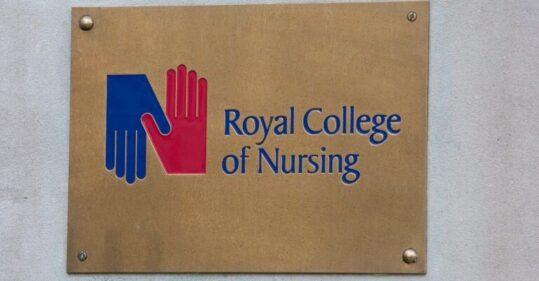RCN publishes new definition of ‘nursing’

The Royal College of Nursing (RCN) has launched a new definition of ‘nursing’ to highlight the ‘safety-critical’ profession that it is, and to reflect significant changes within the role over the last two decades.
Some 20 years has passed since the college last published a definition of nursing and since then, ‘the nursing profession has changed enormously’, the RCN said.
The RCN Professional Nursing Committee has worked alongside members, fellows and forums to create new definition, which centres on four pillars: clinical practice, education, research, and leadership.
It will be used to underpin the college’s updated Principles of Nursing, which cover the aspects of behaviour, attitude and approach that support good care and can be expected of nurses. These principles are also mapped to the Nursing and Midwifery Council (NMC) code of conduct.
Related Article: Compassionate leadership: what it means for nurses
The definition is:
‘Nursing is a safety-critical profession founded on four pillars: clinical practice, education, research, and leadership.
‘Registered nurses use evidence-based knowledge, professional and clinical judgement to assess, plan, implement and evaluate high-quality person-centred nursing care.
‘The work of registered nurses consists of many specialised and complex interventions. Their vigilance is critical to the safety of people, the prevention of avoidable harm and the management of risks regardless of the location or situation.
‘Compassionate leadership is central to the provision and co-ordination of nursing care and informed by its values, integrity and professional knowledge. Responsibility includes leading the integration of emotional, physical, organisational, and cognitive nursing work to meet the needs of people, organisations, systems, and populations.
‘Registered nurses are decision makers. They use clinical judgement and problem-solving skills to manage and co-ordinate the complexity of health and social care systems to ensure people and their families are enabled to improve, maintain, or recover health by adapting, coping, and returning to live lives of the best quality or to experience a dignified death. They have high levels of autonomy within nursing and multi-professional teams, and they delegate to others in line with the NMC code.’
Related Article: Investment in nursing needed to achieve 2030 healthcare target
New definition will ‘ensure nurses are valued’
The RCN said the new wording not only reflected the changes to the profession in recent years, but also the ‘increased complexity of the profession and responsibility of registered nurses’.
Rachel Hollis, chair of the RCN Professional Nursing Committee, said: ‘This has been a hugely important piece of work by the RCN and will help ensure that registered nurses are valued and respected, and the scope of their work is acknowledged.
‘The definition will sit alongside our revised principles of nursing, which are of relevance to the whole nursing workforce.’
Related Article: RCN extends chief executive Pat Cullen’s tenure
She added that the new definition would also ‘underpin the RCN Professional Framework, which is designed to provide clarity on levels of practice and will establish a career framework for nurses, developed by nurses’.
A digital RCN resource is expected to launch at the end of the year, bringing together the definition, the principles and career framework.

See how our symptom tool can help you make better sense of patient presentations
Click here to search a symptom

